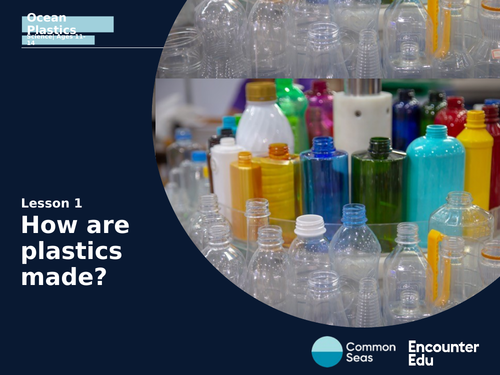






In this chemistry Key Stage 3 (KS3) lesson, students will learn how monomers and polymers dictate the properties of plastics. This lesson focuses on how plastics are made. Included are teacher resources for students to make their own polymer, using PVA and borax, to observe how changing the structure of a substance changes its properties.
This individual lesson is part of a larger unit called Oceans Plastics. Ocean Plastics Science is a Key Stage 3 (KS3) resource combining both biology and chemistry. Students are taken on the journey of plastic. Exploring how plastics are manufactured, used, and disposed into the ocean. Students will learn the science behind what makes plastics both brilliant for everyday purposes and devastating to our oceans and marine life.
Included in this topic are teacher resources that promote students to conduct authentic research, emulating research conducted by The University of Plymouth. Students will test the properties of plastics, investigate compostable alternatives, and analyse case studies to discover how plastics can physically and chemically harm marine life.
If you liked this resource, please rate and review below. This will help to promote oceans education in schools worldwide.
Something went wrong, please try again later.
This resource hasn't been reviewed yet
To ensure quality for our reviews, only customers who have downloaded this resource can review it
Report this resourceto let us know if it violates our terms and conditions.
Our customer service team will review your report and will be in touch.